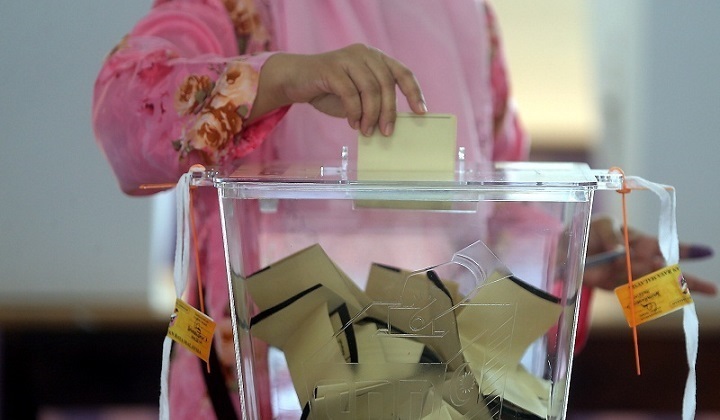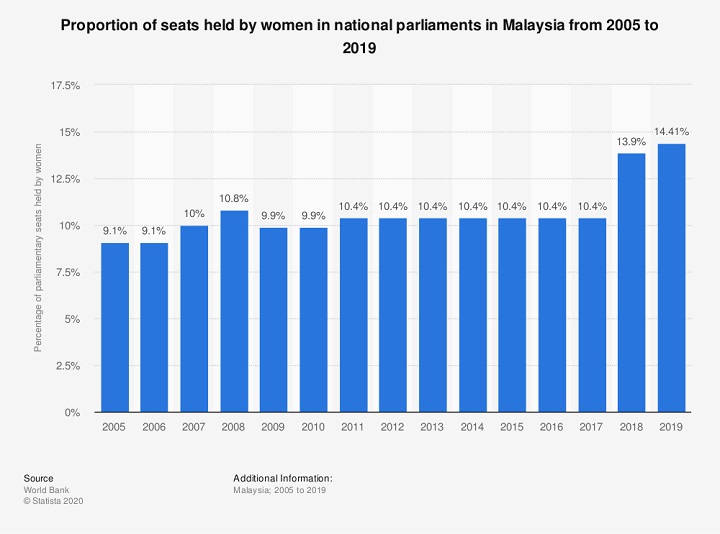Our Elections Are Broken In Many Ways, But Here’s A Small Fix Being Tried Elsewhere
Aren’t you tired of having to choose which political party you hate less?

Subscribe to our Telegram channel for the latest stories and updates.
You might recall that during the 14th General Election there was a small campaign called #UndiRosak.
#UndiRosak suggested that voters who were unhappy with being offered the choice of either Barisan Nasional or Pakatan Harapan could spoil their votes in protest.
Spoiled votes, also known as protest votes, are an accepted practice within the Westminster Parliamentary System, sending a message to political parties to try harder next time.
#UndiRosak Despised By Many
However, the backlash faced by #UndiRosak proponents ranged from demeaning, to being highly offensive and even threatening.
The main concern of Barisan Nasional and (predominately) Pakatan Harapan supporters who were against #UndiRosak was that the movement would split the vote and cost them the upcoming election.
They argued that it was better to vote for a candidate that’s likely to win and beat the candidate that was more hated, a practice known as Strategic Voting or Tactical Voting.
Because this mentality is seen as necessary, much to the dismay of unhappy voters as well as third-party and independent candidates, Malaysian politics is basically locked in a duopoly.
However, there is a relatively simple way to open up Malaysian politics so that voters won’t have to vote strategically, or “waste” a vote by spoiling it or picking someone who’s unlikely to win.
It’s called Ranked Choice Voting, also known as the Preferential Voting or the Alternative Vote, and it’s already being used across the U.K., in Australia and New Zealand, and in some states in the U.S.
It’s a system that would ensure every vote is counted and one we’ll most probably never see in Malaysia.
What is Ranked Choice Voting?
Voters simply have to rank their candidates from most preferred to least preferred (basically numbering them 1, 2, 3, etc).
That’s the easy part. The counting gets a bit complicated but the thing to remember is the winner will be the candidate who gets more than 50% of the vote.
Let’s say there are 4 candidates – A, B, C, and D – and 50 voters.
First they count all the first choice votes, the results of which are [A=5], [B=15], [C=20], and [D=10].

In our current system where everyone only votes for their one preferred candidate, candidate C would have won. Game over.
However, in Ranked Choice, because no one won more than 25 votes out of 50, candidate A is disqualified for having the lowest votes and their 5 voters’ second choices are counted and added to the other 3 candidates’ totals.
The result is [B=15+3=18], [C=20+1=21] and [D=10+1=11].

Still, no one has more than 25 votes, so candidate D is disqualified and their 11 votes are counted to see who preferred candidate B over candidate C.
The result is [B=15+3+8=26] and [C=20+1+3=24]. Adding them all totals up to 50 votes.

Benefits Of Ranked Choice
In this case, candidate B wins with 26 votes while candidate C lost with 24 because even though they had more votes to start with, more people preferred candidate B over candidate C.
In other words, under Ranked Choice, candidates with a smaller group of dedicated voters won’t win if they also don’t have the support of the majority.
This would force candidates to be more centrist, perhaps even forcing them to be more moderate, in order to appeal to more voters.
On top of that, according to a report by the Times, Ranked Choice encourages minority and third-party candidates, as well as female candidates of which Malaysia is in desperate need because our Parliament is only 14% female.

A Pie In The Sky
So if Ranked Choice is better than our current system, why would it never be implemented here?
It’s not good for major political parties because it could also result in more independent candidates winning elections.
Seeing as both major parties would lose out if something like that happens, Ranked Choice is unlikely to ever reach the discussion phase when it comes to electoral reform.
That is a shame because while there are many issues that need to be fixed when it comes to Malaysian elections – like gerrymandering, vote-buying, dirty politics, fake news, and thuggish behavior – this one would only require that everyone just counts a little bit more.
P.S. This was written a long time ago but we were saving it for an election. To be honest, we forgot we had it till we saw the same issue covered in Hassan Minhaj’s Patriot Act. It was great and you should watch it, so we’ll embed it below. Enjoy!
Do you think we’ll ever see Ranked Choice Voting? Let us know what you think on TRP’s Facebook, Twitter, and Instagram!
TRP's Head of Editorial, Hamzah was formerly a hard-news journalist who reported on politics, did investigative work, and occasionally went undercover. He now spends his days sitting at a desk, checking grammar and fielding calls from PR companies, which is totally fine and fulfilling. For sure. He's also married with kids now so his wife and mother said he can't do risky things anymore.





